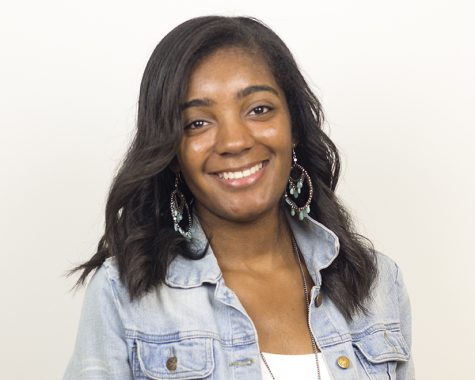Workgroup no. 7 prepares for academic program recommendations
October 11, 2016
With the deadline to submit a preliminary report on academic programs to the vice presidents fast approaching, Workgroup No. 7 assigned individual members to evaluate a portion of each of the academic colleges during Tuesday’s meeting.
Though the meeting was originally scheduled for 1 p.m., the workgroup changed the meeting time to 8 a.m. Tuesday in the Shelbyville Room on the third floor on the Martin Luther King Jr. University Union.
Workgroup No. 7 is charged with providing recommendations for all of the academic programs offered by the College of Arts and Humanities, the College of Education and Professional Studies, the College of Sciences, and the College of Business and Applied Sciences.
Workgroup Chair Cindy Rich, project director for secondary education and foundations, said having only eight members in the taskforce to evaluate hundreds of academic programs is daunting, but assigning colleges to each member helps manage the workload.
Rich said the workgroup split the academic colleges in half, so four members will analyze all of the departments in the first two colleges, while the other set of four members will examine the departments in the last two colleges.
There are a total of eight members in Workgroup No. 7, with four faculty members and four staff members.
Rich said every academic college has representation because each faculty member is a part of a separate academic college.
“It’s nice to have diverse opinions and viewpoints. That’s why we want every member to look at each program,” Rich said.
Each member has a range of seven to 22 years of experience at Eastern, so having that background knowledge makes their feedback valuable, Rich said.
“We have been here when we had a lot more students and when Eastern was thriving, so we know what it looks like,” Rich said. “We know things have to change, and we need to do whatever we can to keep students coming here.”
According to the vitalization project website, the members have to assess the programs based on if they align with the university’s goals, if the program is marketable to prospective students, what the program’s current enrollment is and the cost of the program.
Once the members evaluate the two colleges they are assigned, the group will share notes with each other and compare critiques. Then the members will switch and critic the other two colleges.
To eliminate any discrepancies when individual members evaluate programs, the group decided on terms they will use to analyze the programs.
One of the terms brought up at the meeting was “accreditations” and accrediting bodies.
When looking at these programs, each member will identify which ones have accrediting bodies, which look at the program’s validity.
Rich said these organizational terms will help members pinpoint areas when analyzing the academic programs and will help when drafting concise narratives.
“That way we are all coming from the same place and using the same language,” Rich said.
Before the meeting, the members were under the impression that they each had had to agree on all of the recommendations that will be submitted in the preliminary report.
However, if the members have trouble agreeing on a particular program’s final recommendation, they can express those different viewpoints in the narrative, Rich said.
“It doesn’t have to be a unanimous opinion, but everyone in our committee voice can be heard,” Rich said.
The workgroup will share its recommendations with Blair Lord, vice president for academic affairs, and then have three weeks to make any changes that the vice president offers.
Kalyn Hayslett can be reached at 581-2812 or [email protected].



















































